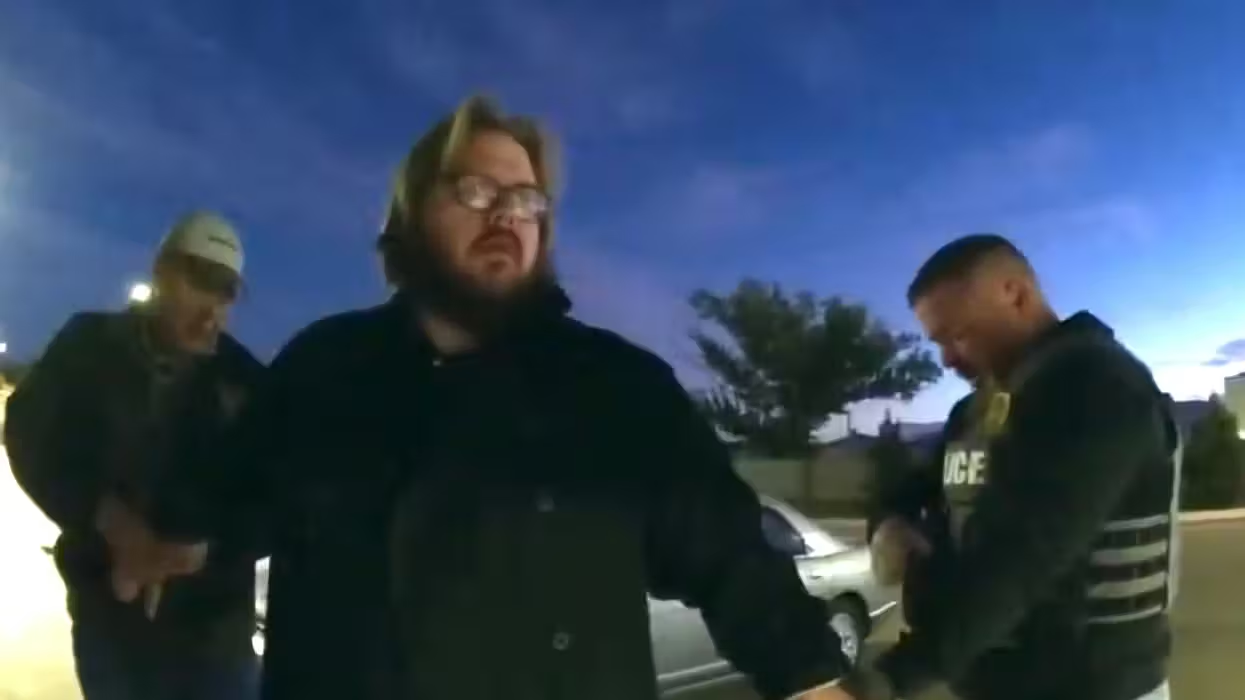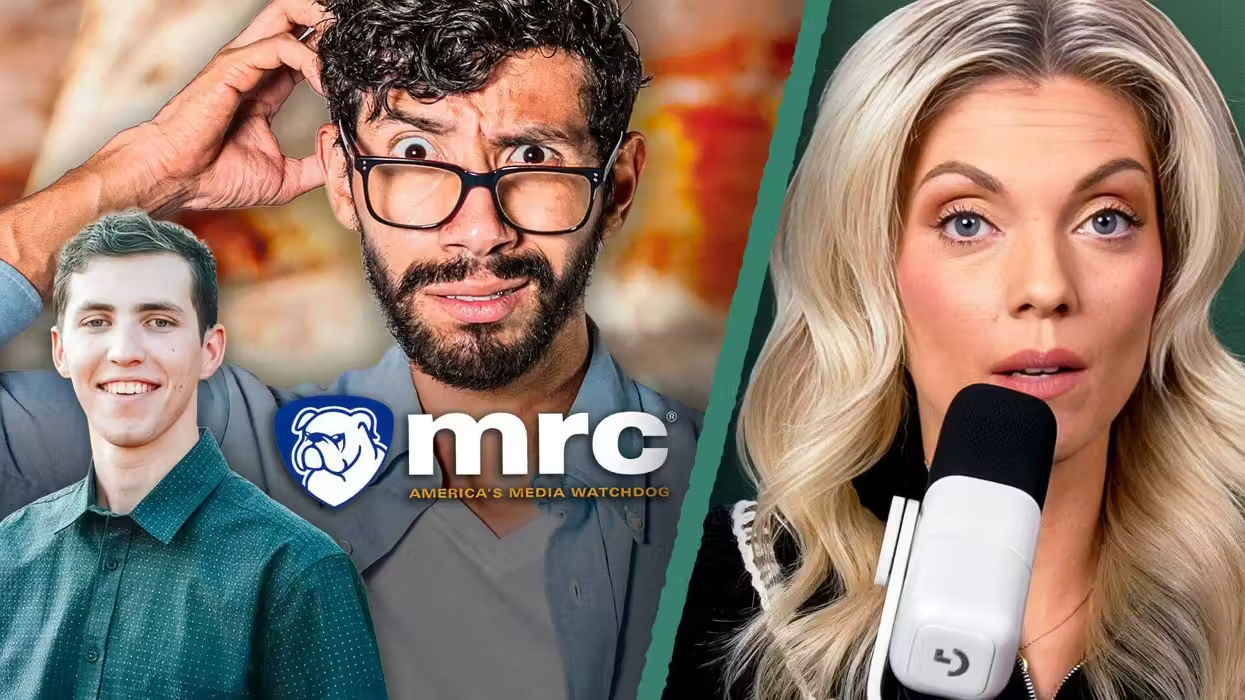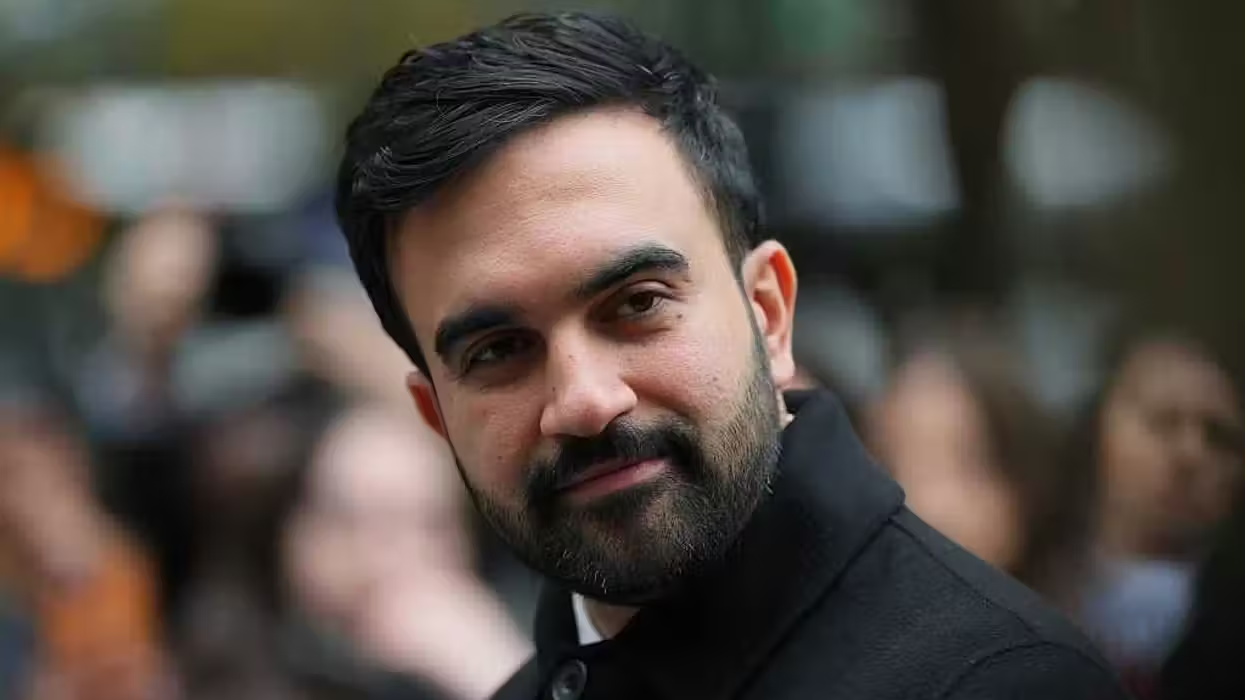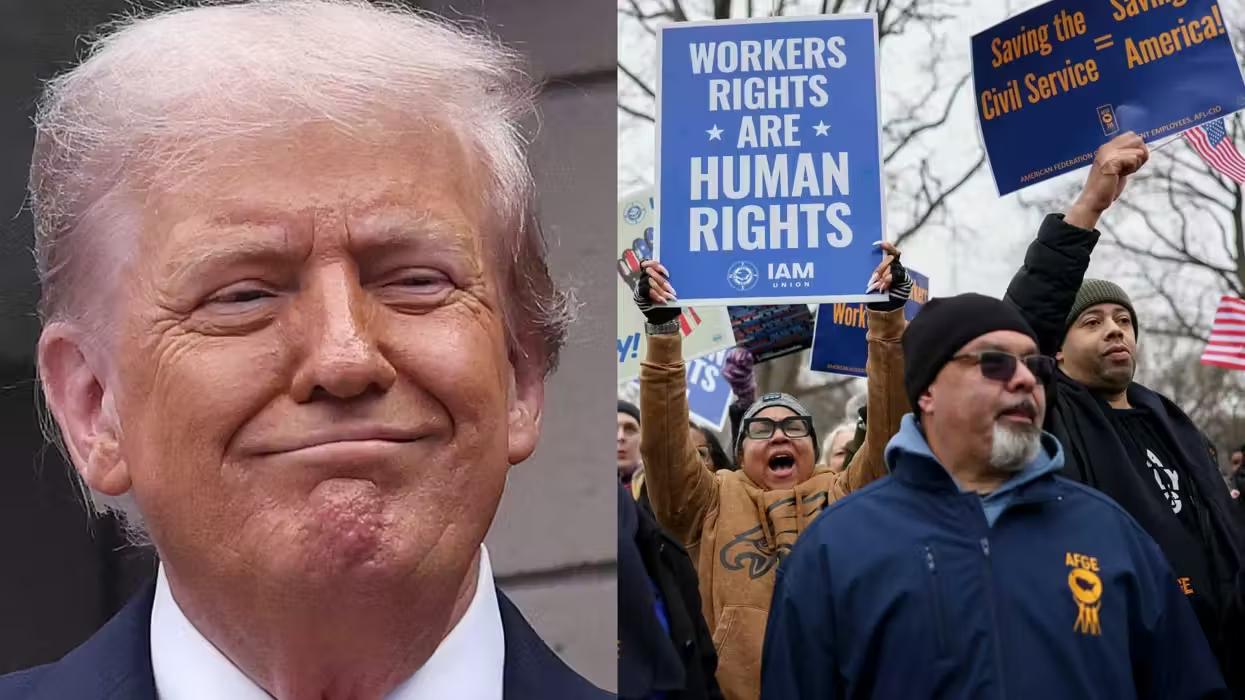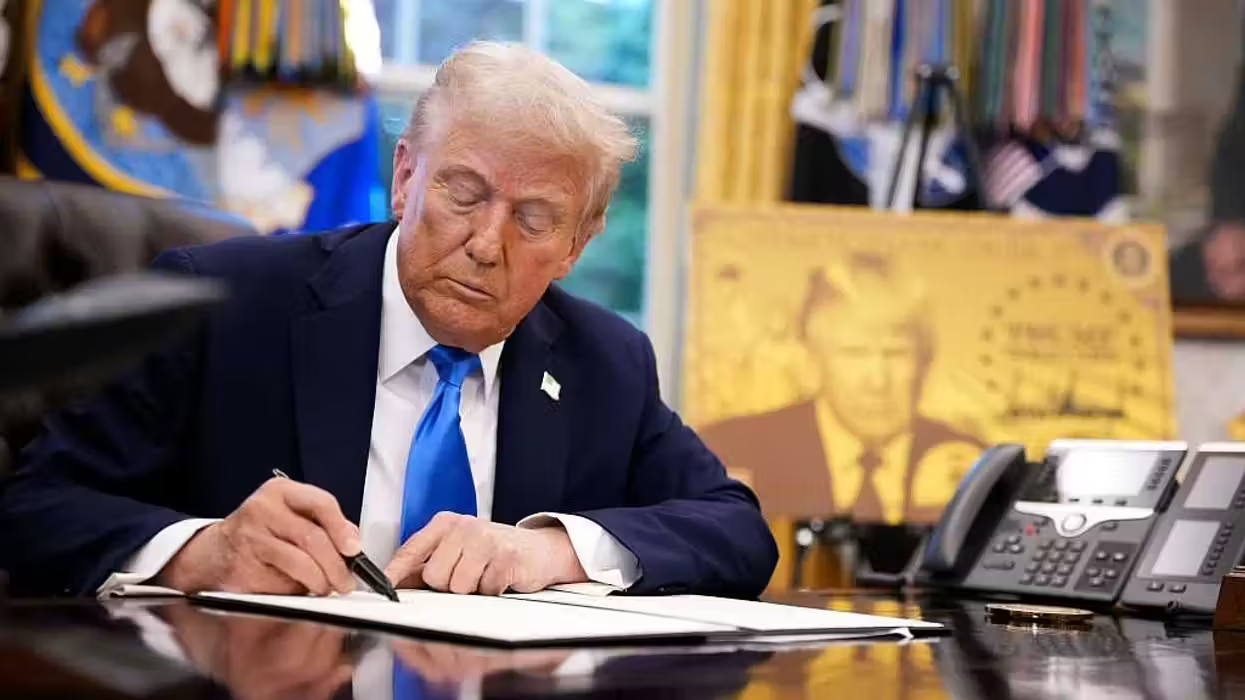The Obama administration's lack of transparency, purging of crucial terror-related documentation and failure to counter radical ideologists within the United States has made the nation vulnerable to terrorism, according to a new government report and to counterterrorism experts who spoke with TheBlaze.
A February Congressional Research Service report on "countering violent extremism" within the U.S. found that despite administration policy enacted in 2011, the federal government still lacks the tools and law enforcement leadership necessary to effectively combat radicalization in the United States.
The administration's counterterrorism plan fails to adequately target radicalized groups or individuals, the report said. The report suggested that a number of its policies actually limit law enforcement's ability to track down extremists and said it "may call for oversight from Congress."
 SWAT team members search door to door for 19-year-old Boston Marathon bombing suspect Dzhokhar Tsarnaev on April 19, 2013 in Watertown, Mass. (Getty Images/Mario Tama)
SWAT team members search door to door for 19-year-old Boston Marathon bombing suspect Dzhokhar Tsarnaev on April 19, 2013 in Watertown, Mass. (Getty Images/Mario Tama)
"There is no single agency managing all of the individual activities and efforts of the plan. At the national level, some may argue that it would be of value to have a single federal agency in charge of the government’s (counter-violent extremism) efforts," the congressional report states, adding that there is also no real clearinghouse either for "local entities" to identify grassroots groups that could aide in counterterrorism efforts.
The report came after years of complaints by counterterrorism officials about having their hands are tied and that the government's current Counter Violent Extremism policy – abbreviated CVE – limits their ability to investigate suspect Muslim groups within the United States and is not effective.
On Wednesday, The Blaze TV's For The Record episode "The Purge" (8 p.m. ET) will reveal how failures to appropriately investigate extremist groups and actions by the administration to cleanse what officials deemed as anti-Islamic counterterrorism training manuals has put the nation's security at risk. Counterterrorism experts warned that the administration's policies, particularly the "do's and don'ts" of the counter extremist strategy, have tied the hands of investigators and instead opened the door for Islamic radicals already in the United States.
[sharequote align="left"]"There is no single agency managing all of the individual activities and efforts of the plan."[/sharequote]
Dr. Sebastian Gorka, a counterterrorism expert and assistant professor at National Defense University in Washington, D.C., told For The Record he is alarmed "that more Americans aren't up in arms -- we are fundamentally undermining the ability of our brave policemen and soldiers to do their jobs."
In 2010 and 2011, Obama administration shifted its policy from a global war on terror to Countering Violent Extremism, abbreviated CVE. The new policy, which stated that Al Qaeda was still the main threat to the United States, would also lead to the purging of any references to Islam that multiple U.S. Muslim organizations deemed were promoting "Islamophobia." On Oct. 19, 2011, nearly 60 U.S. Islamic groups sent a letter to then-White House counterterrorism czar John Brennan asking him to establish an interagency advisory board to remove offensive language.
The new policy was just the beginning. Shortly after, federal law enforcement officers were warned not to "use training that equates radical thought, religious expression, freedom to protest, or other constitutionality protected activity, with criminal activity."
Gorka, who trains Special Forces and other federal law enforcement officials, remembers when the White House policies regarding counterterrorism training changed and when instructors were forced to turn over their training manuals to determine whether it contained certain words or phrases would be offensive to Muslims. It limited his ability to train law enforcement officers effectively, he said.
During that time, Gorka was training the FBI and his manual was taken by the agency. A week later, he said, he received an email from the FBI in which "somebody, somewhere took offense to my slides, calling them inflammatory and said, either these are removed or you don't get to brief federal law enforcement." Gorka eventually discovered that the extensive edits to his manual came from the highest levels of the civil right's division at the Department of Justice, he said.
Tim Clemente, a former FBI special agent who conducted terrorism and counter-narcotics investigations, told TheBlaze that the reason these "groups continue to operate is because of the perception of religious scrutiny or persecution if we [the government or the FBI] look too closely at them and their activities."
Clemente added, "groups such as this ordinarily cloak their illicit activities behind the veil of religious and charitable causes, so they can remain under the radar, especially when political correctness gets in the way of actually calling a spade a spade."
Rep. Louie Gohmert (R-Texas), a member of the House Judiciary Committee, told TheBlaze that the Obama administration has no strategy when it comes to internal terror networks and threats inside the U.S. He noted that the Congressional Research Service report's long list of recommendations should be a warning that as a nation, the U.S. is confronted with a number of national security risks it is unprepared to handle.
"Anyone who looks objectively can see we do not have an effective strategy to dealing with terrorism because the most egregious threat is from radical Islam and this administration will not admit that radical Islam is the biggest violent extremism threat," said Gohmert, who is also the vice chair of the Subcommittee on Crime, Terrorism, and Homeland Security, which has jurisdiction over federal law enforcement and internal security.
"You can never have an effective strategy to deal with terrorism until you're willing to identify the enemy," Gohmert added. "[Terrorist groups] understand one thing and one thing only, that is strength. When you show them that [we're a nation] that does not support radical killing of innocent women and children, as we did on 9/11, it sends a message that maybe this is not an effective strategy. This administration needs to have an effective strategy, but refusing to identify the enemy, continuing to purge our training documents of anything that might offend particular groups is a failed one."
Gohmert said Congress should consider the recommendations made in the government report, which included developing intervention models currently used by federal and local law enforcement to target street gangs as a way of targeting possible radical groups in vulnerable communities.
A Department of Homeland Security official with direct knowledge of counterterrorism investigations within the United States said "the difficulty in determining or investigating what groups or individuals are radical Islamic extremists is so overwhelming for law enforcement officials" who have basically been hindered by supervisors from looking into groups that can threaten to sue law enforcement agencies or individuals for violating their individual rights.
If the "federal government in the business of determining which ideologies are dangerous and which are safe—essentially determining which beliefs are good and which are bad" then Congress should ask the Administration to "define exactly what it means when referring to violent extremist narratives," the report states.
The report also recommended that Congress determine what criteria the administration uses in selecting the Muslim groups that it works with, and do they hold those groups to certain conditions, described as "rules of the road" in the study.
"Congress may opt to consider whether there is a need to require the administration to release public guidelines in this area," the report states.
The report also questioned whether government agencies involved in clandestine counterterrorism work, like the FBI, Department of Justice and Department of Homeland Security should be doing community outreach because it "might not be particularly effective to have the same federal agencies responsible for classified counterterrorism investigations grounded in secrecy also be the main players in (countering violent-extremism) strategy."
"If a community views government counterterrorism investigative activity as overly aggressive, it may not willingly cooperate in engagement programs," the report stated. "One expert has noted that “counter-radicalization is not about intelligence-gathering nor is it primarily about policing.”
—
Sara A. Carter can be followed (@SaraCarterDC) on Twitter
—
Programming note: Watch TheBlaze TV's all-new episode of For The Record, "The Purge" Wednesday at 8 p.m. ET.

 SWAT team members search door to door for 19-year-old Boston Marathon bombing suspect Dzhokhar Tsarnaev on April 19, 2013 in Watertown, Mass. (Getty Images/Mario Tama)
SWAT team members search door to door for 19-year-old Boston Marathon bombing suspect Dzhokhar Tsarnaev on April 19, 2013 in Watertown, Mass. (Getty Images/Mario Tama)

